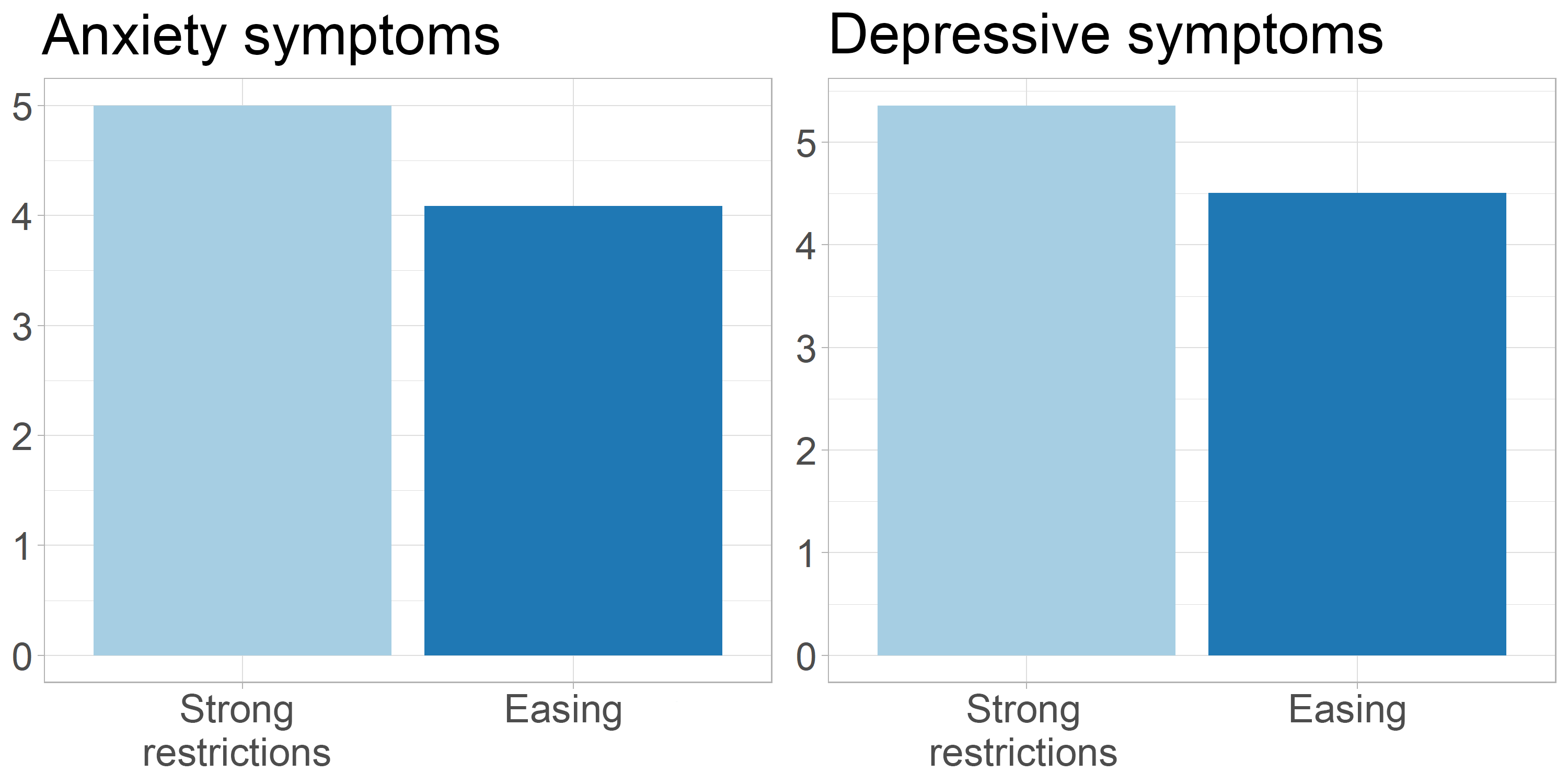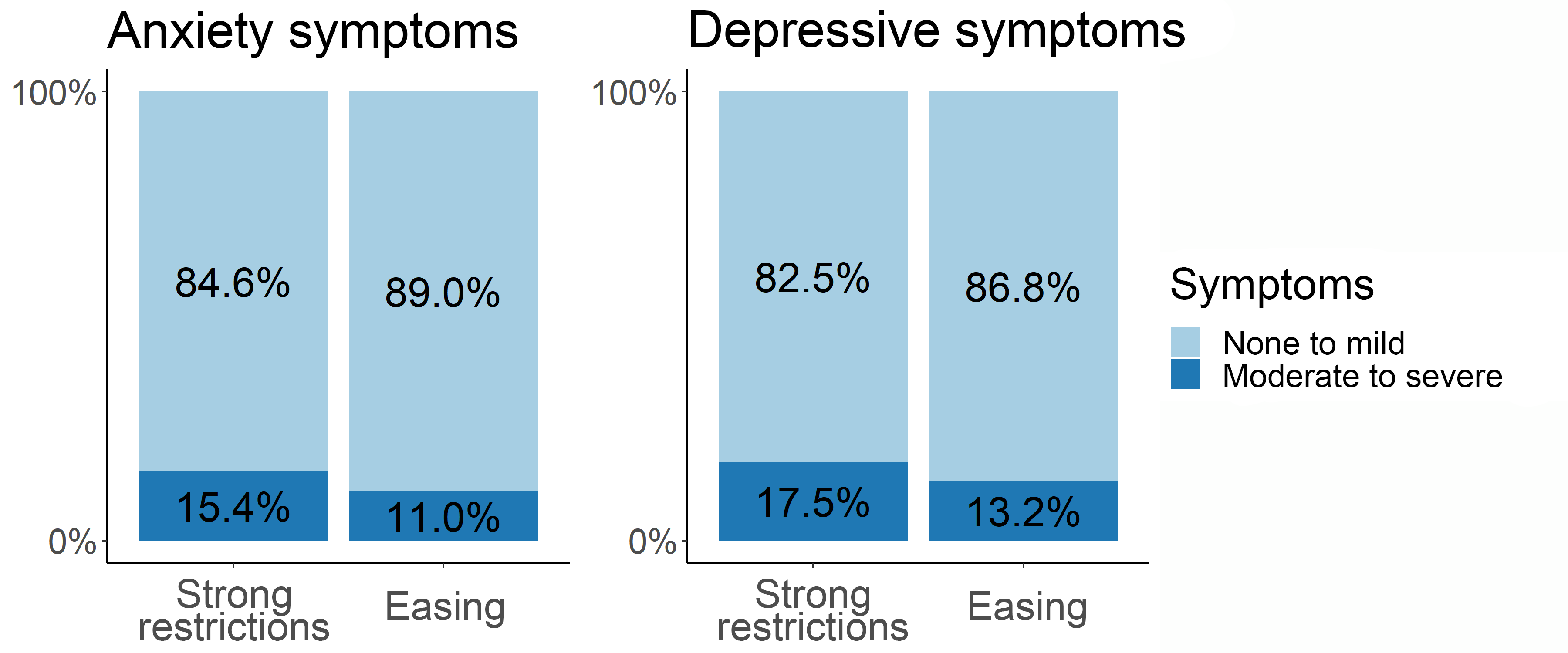In September 2021, a relatively calm phase of the pandemic, we asked participants of the DigiHero Study in Halle (Saale) about their mental well-being. Additionally, we asked participants to rate the state of well-being during a time in the pandemic where restrictions were more extensive.
In order to measure these conditions, we used screening questionnaires, among other things, to assess symptoms of anxiety and depression and estimate the extent of said symptoms. For this purpose, participants were presented with a variety of preset statements that they had to rate on a scale of 0 (not at all) to 3 (almost every day). From this, a score was calculated indicating the current well-being of the participant. The higher the score, the worse the state of mental health at the time.
The participants evaluated mental well-being during periods of increased restrictions to be worse than during times of relaxation of pandemic related restrictions.
Fig. 1 shows increased scores for symptoms of both anxiety and depression at the time of more severe restrictions.
To make these numbers more tangible, the point value can also be subdivided by the severity of symptoms. A score of 10 points or more indicates moderate to severe symptoms.
As shown in Fig. 2, the more severe symptoms by a larger proportion of the DigiHero-participant sample coincided once more with periods of increased restrictions. As the restrictions were lifted, the amount of cases with moderate to severe symptoms decreased.

